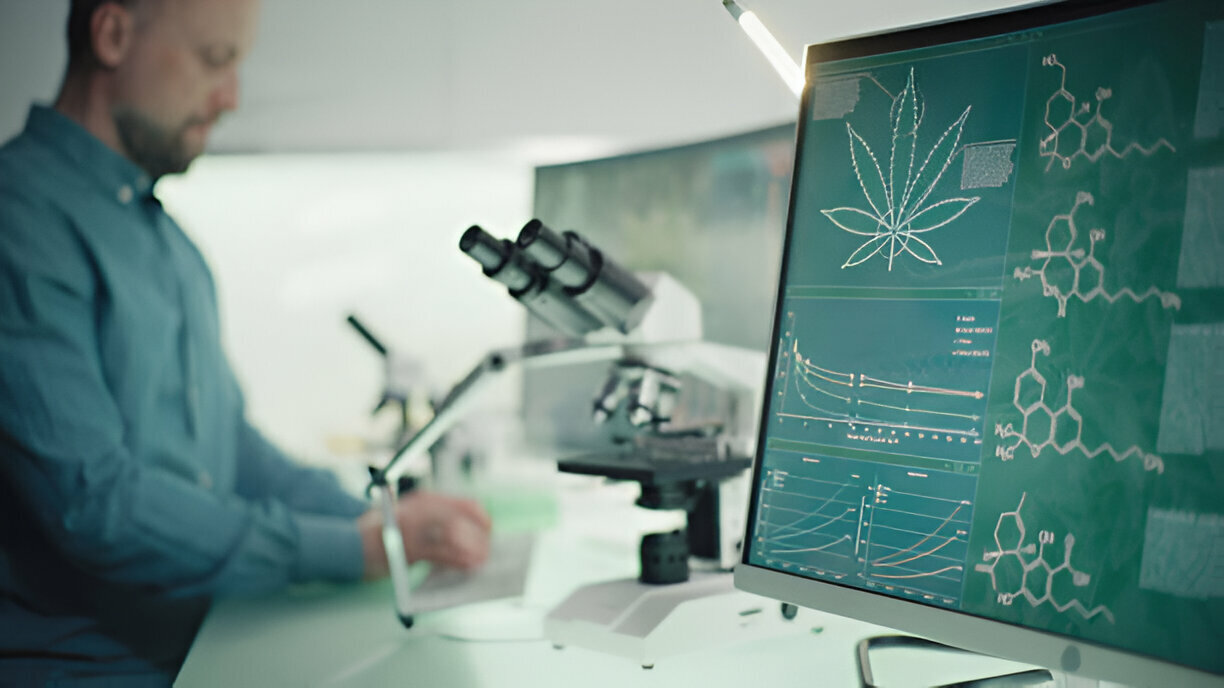As cannabis research continues to grow, so does interest in the many different compounds found within the plant. One cannabinoid gaining attention is THCA, the raw, non-psychoactive form of THC. While often overshadowed by its well-known counterpart, it may offer unique health benefits—and it plays a key role in how cannabis works. In this article, we’ll explore what THCA is, how it differs from THC, how long it stays in the body, and the potential therapeutic uses for this lesser-known cannabinoid.
What Is THCA? Understanding the Non-Psychoactive Cannabinoid
THCA (tetrahydrocannabinolic acid) is a naturally occurring compound found in raw and live cannabis plants. It is the precursor to THC, meaning it eventually converts to THC when exposed to heat through a process called decarboxylation (like when cannabis is smoked, vaped, or cooked).
Unlike THC, it does not produce psychoactive effects. You won’t feel “high” from consuming raw cannabis or THCA products that haven’t been heated. However, that doesn’t mean it’s inactive—research suggests THCA may have several beneficial properties of its own, even in its raw form.
What’s the Difference Between THC and THCA?
The primary difference between THC and THCA is their chemical structure and effect on the body.
- THCA is found in fresh, unheated cannabis. It is non-psychoactive and must undergo decarboxylation (usually via heat) to convert into THC, the compound responsible for the “high” associated with cannabis.
- THC, or delta-9 tetrahydrocannabinol, is the psychoactive cannabinoid that interacts with the brain’s CB1 receptors to produce euphoria, altered perception, and other effects.
In simple terms: tetrahydrocannabinolic acid becomes THC when you apply heat. This transformation is key to how cannabis products are used—raw cannabis juicing preserves it, while smoking converts it into THC.
How Long Does THCA Stay in Your System?
Although tetrahydrocannabinolic acid itself is non-psychoactive, it can still be detected in drug tests. Most standard tests look for THC metabolites, which may include those resulting from THCA after it has been converted—even unintentionally—through heat or digestion.
Detection times can vary, but general estimates are:
- Occasional use: 1–3 days
- Moderate use: 3–7 days
- Chronic or daily use: 10–30+ days
Factors like metabolism, hydration, body fat, and method of consumption can influence how long THCA and its byproducts stay in your system. If you’re using cannabis products for therapeutic reasons and are subject to testing, it’s important to understand how both of them might be detected.
Forms of THCA: Flower, Crystals, and Edibles
Tetrahydrocannabinolic acid is available in various forms, depending on how it’s processed and consumed. Some of the most common include:
- Raw cannabis flower: Contains high levels of THCA before being smoked or vaped.
- THCA crystals or diamonds: A highly concentrated and purified form of THCA, often used in dabbing or vaporizing.
- Tinctures and capsules: Some formulations preserve THCA by avoiding heat, offering a non-psychoactive alternative for therapeutic use.
- Edibles and juices: Raw cannabis edibles or juices (unheated) may retain THCA and be used as dietary supplements or wellness aids.
Keep in mind that any heating process, even mild cooking, can activate THCA into THC, so product handling is important for preserving its original form.
Potential Therapeutic Benefits of THCA
Although research is still emerging, it shows promise as a therapeutic compound. Some of the potential benefits being studied include:
- Anti-inflammatory properties: It may help reduce inflammation, making it useful for conditions like arthritis or autoimmune disorders.
- Neuroprotective effects: Early studies suggest it may protect brain cells and support neurological health.
- Anti-nausea: It may offer relief from nausea and vomiting, particularly in patients undergoing chemotherapy.
- Appetite stimulation: Like THC, THCA could support healthy appetite, especially in people experiencing weight loss due to illness.
- Pain relief: Though not as strong as THC in this regard, THCA may still offer mild analgesic effects.
Because THCA doesn’t cause intoxication, it may be a useful option for patients who want the benefits of cannabis without feeling “high.”
Final Thoughts
THCA is more than just a precursor to THC—it’s a unique cannabinoid with its own potential health benefits. As interest in plant-based and non-psychoactive therapies grows, it may become a more prominent part of the medical cannabis conversation.If you’re considering cannabis for therapeutic use, whether in the form of THCA or THC, it’s important to speak with a knowledgeable provider. The team at Pause Pain & Wellness is here to help you navigate your options and find the approach that best fits your needs.

